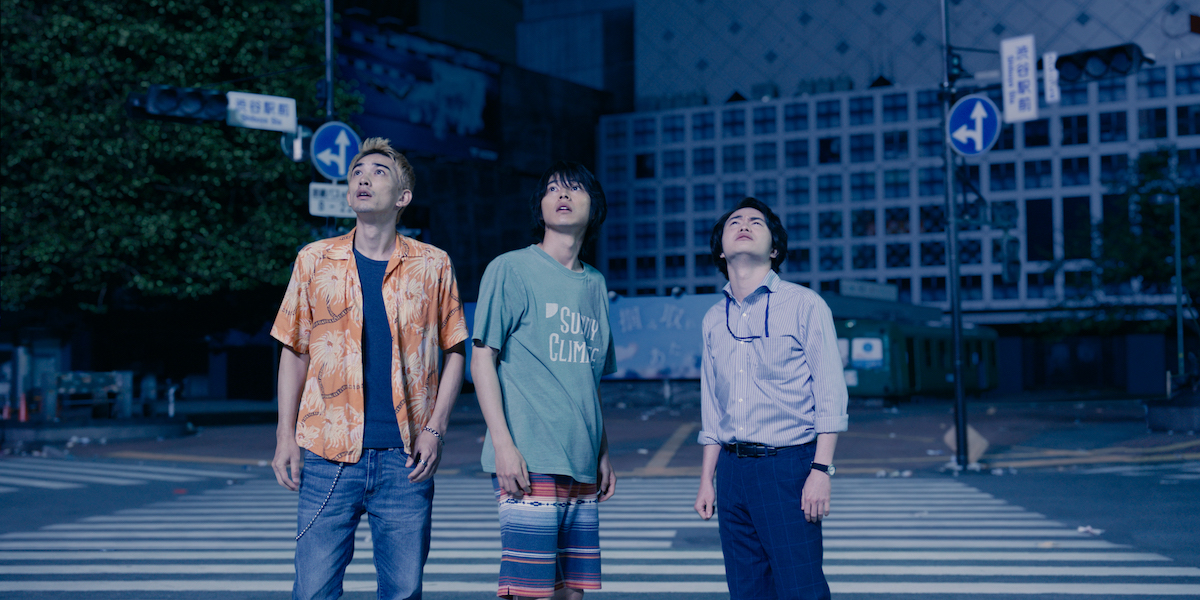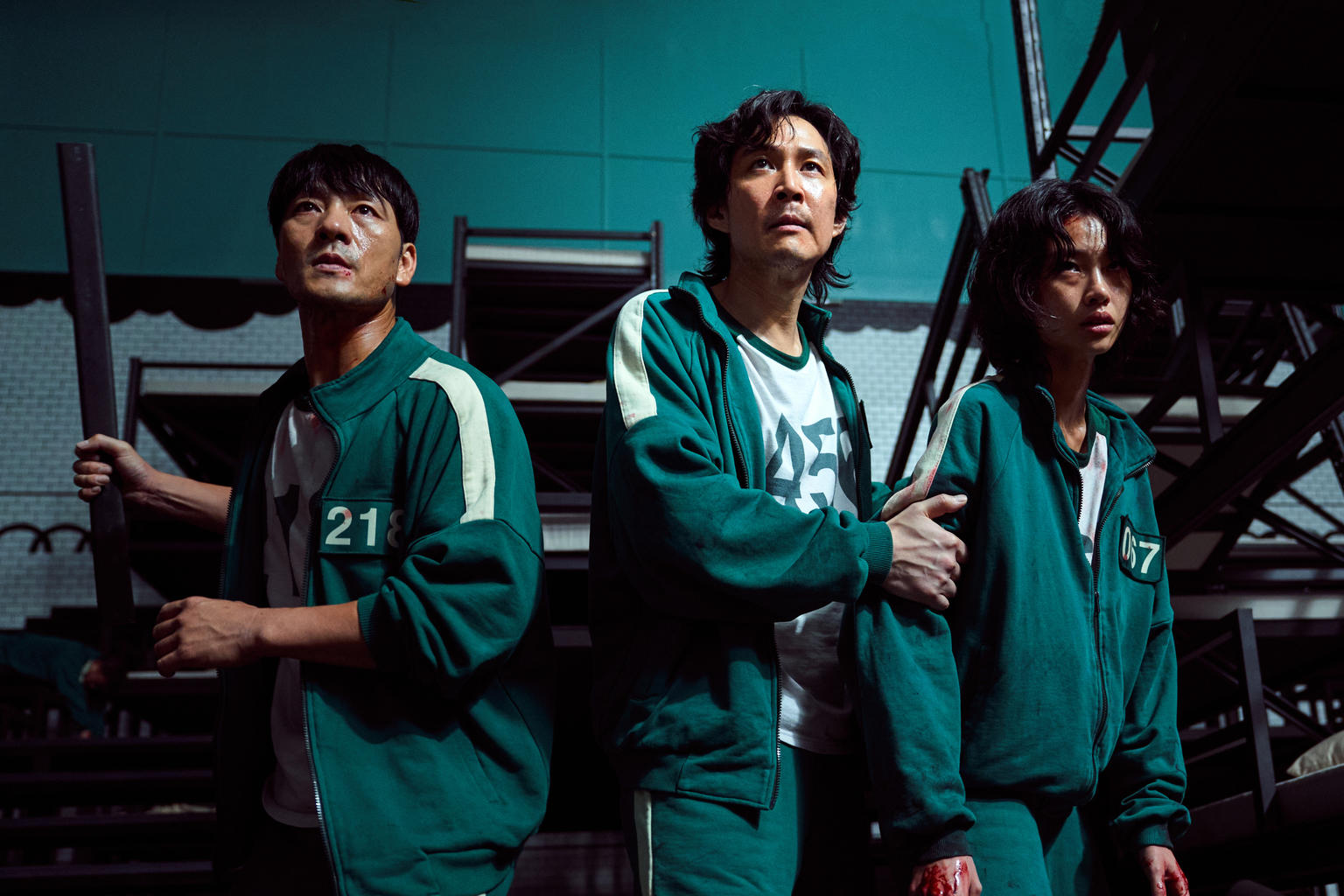At the time of writing, Squid Game is enjoying its third consecutive month on the list of the Top 10 most popular Netflix shows in Japan. But the success of the Korean drama about people competing in life-and-death challenges based on children’s games for money has also been good news for other shows. Squid Game has apparently led to a “sizable uptick in global viewing” of Alice in Borderland, a similarly-themed Japanese survivor game drama on Netflix.
That does bring up an interesting question, though. Japan actually has a number of shows and movies with plots reminiscent of or nearly identical to Squid Game. And many of them are popular, just not to the record-breaking levels of the South Korean hit. What’s that about?

Saturation with Characters with Special Talents
In Japanese shows where people fight for their lives and sometimes money, it’s common for the protagonists to have some special talent that helps them survive. For example, Ryohei Arisu, the main character in Alice in Borderland, spent most of his life playing video games. But those puzzle-solving skills suddenly come useful when he and his friends are transported to a parallel world and forced to compete in lethal games.

Similarly, Kaiji Ito from Kaiji is a lifelong gambler and loser who, when human lives are on the line, suddenly discovers his talent for reading people and creative thinking. So, when he and a group of fellow participants in a life-and-death game have to cross a narrow beam between two skyscrapers, he comes up with an idea to draw a line in the middle of their shoes so they can align it with the beam as they walk to steady themselves.
Even Erika Toda’s Nao Kanzaki from Liar Game, a show where people try to swindle money from each other, has the special ability of being “stupidly naive” in excess. In any other context, this would be a huge character flaw, but here, her sincerity helps her amass allies like the expert con artist Shinichi Akiyama.https://www.youtube.com/embed/N0p1t-dC7Ko?wmode=transparent&modestbranding=1&autohide=1&showinfo=0&rel=0
The king of this trope seems to be the most famous Japanese survival story of them all, Battle Royale. While many might remember it as the tale of ordinary kids forced to kill each other by a dystopian, fascist government, many of those kids were anything but ordinary. Lest we forget, the character of Shinji Mimura almost brought the entire game to an end using skills taught to him by his spy uncle, including computer hacking and making improvised explosives. Not exactly common, everyday talents, especially coming from a teenager.
The Comfortable Familiarity of the Ordinary Person
On the other hand, Seong Gi-hun from Squid Game is just a guy. He is a gambler and an occasional chauffeur but none of those skills unexpectedly aid him in surviving in the games. That said, there are episodes where other characters’ talents prove very useful, like the glassworker who can tell if the glass bridge panels the players must step on are made from regular or reinforced glass. Gi-hun, however, is just a nice person, but not the nicest. There were other people in the game with purer motivations and personalities. So why was he the focus of the show?
Maybe precisely because he is your average Joe. Another factor for broadening the audience of the show was Gi-hun’s age. He’s much older than your typical survivor drama hero. In Alice in Borderland, Kaiji, Liar Game and Battle Royale, the oldest protagonist is Kaiji (26) while Gi-hun is in his late 40s.

A Need For Traditional East Asian Virtues
In the paper Korean Television Dramas in Japan by Soobum Lee (University of Incheon) and Hyejung Ju (University of Oklahoma), the two researchers concluded that one of the reasons Korean dramas, in general, are popular among Japanese audiences is because they often feature “humane virtues from an Asian perspective.” Virtues that, according to some, are missing in the rapidly modernizing, fast-paced Japan and the entertainment industry here.
With Gi-hun, his “special” power seems to be respect for his elders. Yes, he does start off by stealing from his mother, but he then risks his life to pay for her medical treatment. He’s also the one showing the most care for the elderly character Oh Il-nam. In the end, Gi-hun’s survival almost feels like a reward for respecting this Confucian virtue that’s still a big part of South Korean and Japanese cultures. It’s not that Alice in Borderland, Kaiji, Liar Game or Battle Royale are anti-Confucian virtues. They just don’t make it one of their central themes while Squid Game does.

International Appeal and The K-Wave
In Alice in Borderland, Tokyo, or rather its parallel counterpart, is almost like a separate character on the show. There’s a lot of focus on iconic Tokyo locales such as the Shibuya Scramble Crossing. In contrast, outside of a few key moments here and there, it’s easy to forget that Squid Game is set in South Korea. Well, technically, it’s mostly set on a remote island, so that may explain that. But in a broader sense, the show takes place in an unequal and exploitative capitalist system, which, sadly, makes the story more universal and accessible to global audiences.
In fact, many Korean exports are taking over where Japan used to reign supreme and not just in the realm of TV. J-pop was once the cornerstone of Japan’s global soft power and now K-pop, with bands like BTS, dominates the airwaves. Japan is actually trying to emulate the success of Korean entertainment with acts such as the girl group NiziU, which actually trained in South Korea.https://www.youtube.com/embed/oqxAJKy0ii4?wmode=transparent&modestbranding=1&autohide=1&showinfo=0&rel=0
Who Does it Better?
When you get down to it, what Korea and Japan respectively have to offer isn’t radically different. However, after decades of the latter’s ubiquitous presence on the worldwide entertainment scene, perhaps people are hungry for something with a slightly different cultural flavor. That definitely seems to be the case with Squid Game, which offers people just enough new elements mixed in with just enough familiar stuff to feel fresh and exciting.
And with another Korean production, Hellbound, recently surpassing Squid Game as the most popular show on Netflix, the global Korean cultural revolution is showing no signs of stopping. This is actually great news for all. For South Korea, it’s more spotlight for Korean culture internationally. This, in turn, might inspire producers in Japan to shake up some of their tried TV formulas. And we, the audience, get to enjoy both.
If you loved Squid Game, you’ll love these:
List of 7: Japanese Survivor Game-Based Shows and Films Like Squid Game



